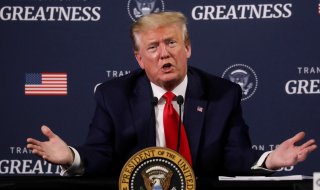Don't Listen to the ‘China Covered Up the Coronavirus’ Narrative
China made some mistakes, as did every country, in responding to the coronavirus, but China’s overall response was more effective than most countries, with domestic quarantines of inter-city travelers, widespread mask-wearing, and a testing and tracing regime with access to a vast trove of data.
National governments, such as the U.S. government, have taken longer than one week to respond even after already knowing that coronavirus was a threat. Even in March, Trump was comparing the coronavirus to the flu. It took him twenty days to put any restrictions on flights from Italy after Italy began locking down cities.
Finally, China was downplaying the potential for human transmission amongst people who showed symptoms. It was not until January 20, that they announced that the virus had been confirmed through study to be communicable, although most viruses, particularly a virus in the coronavirus group, should be assumed to be potentially communicable, barring evidence to the contrary, which is exactly why Taiwanese and Hong Kongese health officials were already working on that assumption before January 20.
At the time, however, no doctors and scientists could have been expected to know that coronavirus spreads between people who do not show symptoms of being sick. By late January, there were apparent cases of asymptomatic transmission being observed, and China’s health ministry did issue a warning about asymptomatic transmission on January 31. But it took months for the United States CDC or the Surgeon General, or health organizations in other Western countries, to recommend widespread mask-wearing.
That—and the high R0—were the main reasons coronavirus spread so quickly and so widely. The 2003 outbreak of SARS did not spread asymptomatically or pre-symptomatically. That, also, is likely why foreign governments did not respond quickly or deliberately enough.
It could be that governments are fallible, that no government could be expected to respond perfectly to even the most trivial challenges, let alone a crisis of unprecedented scale. It could be that coronavirus is the “disease x”—the disease that both spreads extremely quickly and kills at a relatively high rate.
To hold that China could have or should have been able to know from day one that these cases of pneumonia were actually coming from a new virus, or that it should have known the virus spread through the breath of apparently healthy people, and that it should have been able to track every case of the virus, is, somewhat ironically, to hold China to higher standards than the most developed democratic countries in the world. When China mishandles a pandemic, it is ascribed to malfeasance; when the United States and Europe do, it is the ordinary, expected incompetence.
It’s not only an inaccurate narrative, and one that is being used to absolve domestic leaders of responsibility for their mistakes, but it is also in a sense an anti-democracy narrative.
Mitchell Blatt is a former editorial assistant at the National Interest, Chinese-English translator, and lead author of Panda Guides Hong Kong. He has been published in USA Today, The Daily Beast, The Korea Times, Silkwinds magazine, and Areo Magazine, among other outlets. Follow him on Facebook at @MitchBlattWriter.

